This Kitchen Staple Is a Low-Cost, Natural Wasp Repellent That Also Works for Mosquitoes – Plus, Other Easy Ways To Keep Wasps Away
This safe and natural wasp repellent is probably already in your pantry. Find out what it is and how to use it to stop pests from crashing your summer parties.

Laura Walters
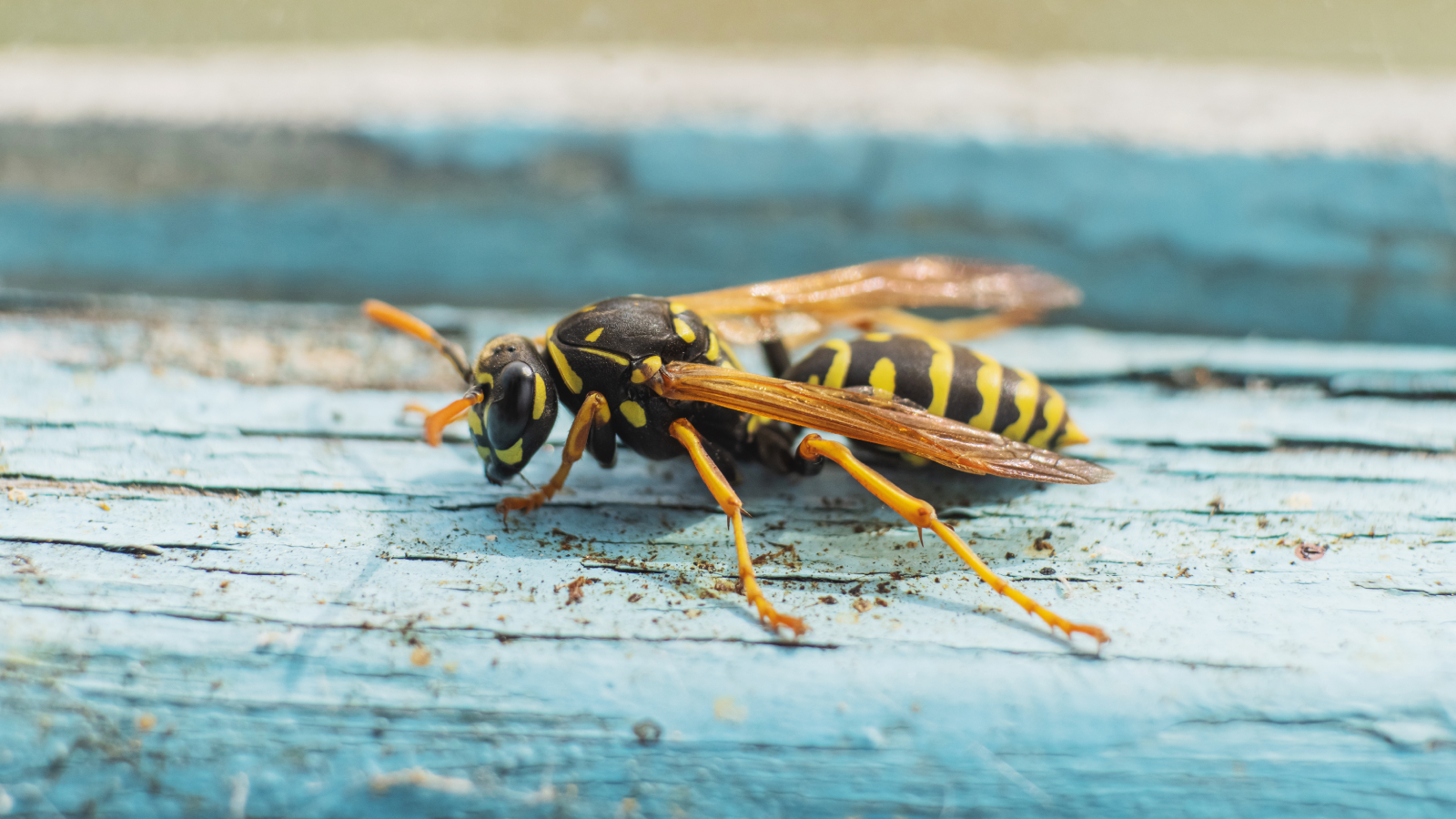
Sign up for the Gardening Know How newsletter today and receive a free copy of our e-book "How to Grow Delicious Tomatoes".
You are now subscribed
Your newsletter sign-up was successful
We all look forward to the sun-filled days of summer and the accompanying delights, but one small insect can put a damper on the season: the wasp. These stinging pests can ruin a camping trip, day at the beach, or BBQ faster than you can say, “Bee gone!”
As someone who’s allergic to yellowjackets, I understand just how upsetting wasps can be for our summer plans, especially when food is involved. That’s why many of us want to know how to kill wasps and be rid of them for good. But no matter how much you hate wasps, you probably don’t want to inhale a cloud of toxic bug repellent either.
That’s why many of us are searching for a natural wasp repellent that is just as effective. But is there a natural wasp deterrent that actually works? Before you run out and get some toxic spray that probably isn’t great to inhale or ingest, try using this one unexpected kitchen item first. It’s probably already in your pantry! Plus, I’ll share some of my other favorite natural ways to deter wasps.
What Attracts Wasps?
In order to know the best way to get rid of wasps naturally, the first step is to understand your enemy. Why do wasps seem to congregate whenever we are trying to relax at the pool, patio or campsite?
Wasps, like humans, are attracted to sugary substances. In nature, they buzz over to ripe or rotting fruit or nectar from flowers. But at your picnic, they’re drawn to soda, juice, watermelon, and all the other sweet treats you’ve brought with you.
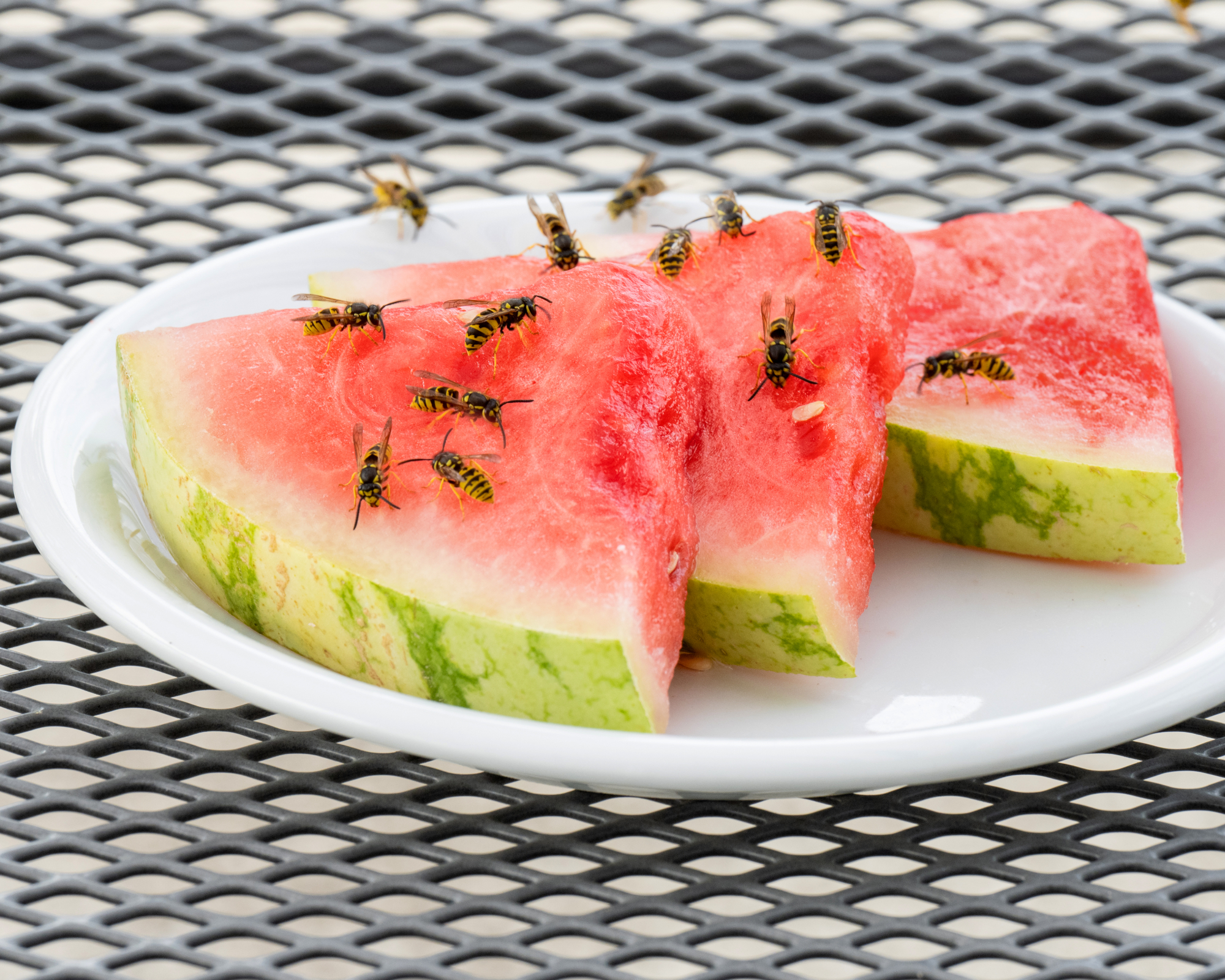
Wasps also are attracted to proteins, like those hot dogs Uncle Bob is cooking on the grill. Wasps and yellowjackets—which I’ve learned to battle safely in my backyard despite my allergy—also eat protein, like dead insects or animals. Wasp larvae are unable to eat nectar and instead are fed with protein sources like masticated insects or bits of hot dog.
Wasps are also social insects, so where you find one, you will no doubt find a multitude. This makes them an especially big nuisance at summer gatherings. So how can you deter wasps and enjoy your leisure time outside without swatting away pests all day?
Sign up for the Gardening Know How newsletter today and receive a free copy of our e-book "How to Grow Delicious Tomatoes".
The Kitchen Staple That Keeps Wasps Away
There's one unlikely kitchen staple that's probably already in your pantry that can double as a safe and natural wasp repellent that also deters mosquitoes: coffee.
While there is some evidence that making a coffee mosquito repellent can reduce the number of mosquito larvae in your yard, does it work on wasps? The science is still out on this one. But this trick is cheap and easy to try, especially if you already have coffee on hand.
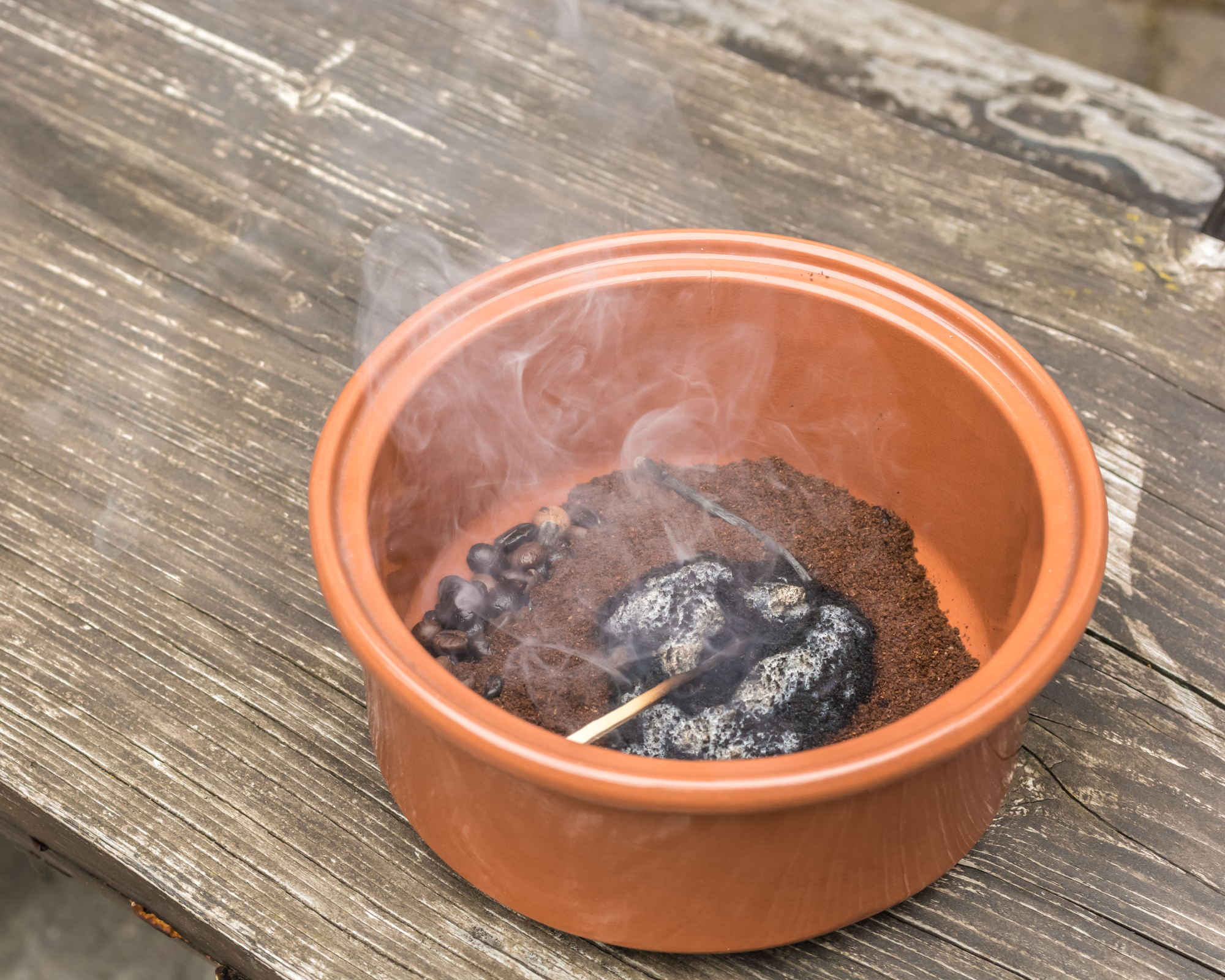
To try this cost-effective and entirely non-toxic wasp repellent, place a couple heaping tablespoons of dry coffee grounds (the cheap stuff will do just fine) in a small heat-proof bowl and light it with a match or lighter.
There shouldn’t be any dramatic flames, but instead the coffee should smolder and smoke. The smell is going to be quite intense, and not at all like freshly-brewed java, so you might want to set it a bit away from your gathering.
Also, be sure to keep the smoke away from pets as it can make them ill. Remember to put the burning coffee repellent on a surface that is heat-safe and in a container that is heat-proof, like a metal or ceramic bowl.
Other Natural Ways To Repel Wasps
If you’re not a coffee drinker and don’t want to buy a bag of beans just to try this trick, there are other safe and natural methods you can use to deter wasps. Here are my three favorites.
1. Use Essential Oils in Candles or Sprays
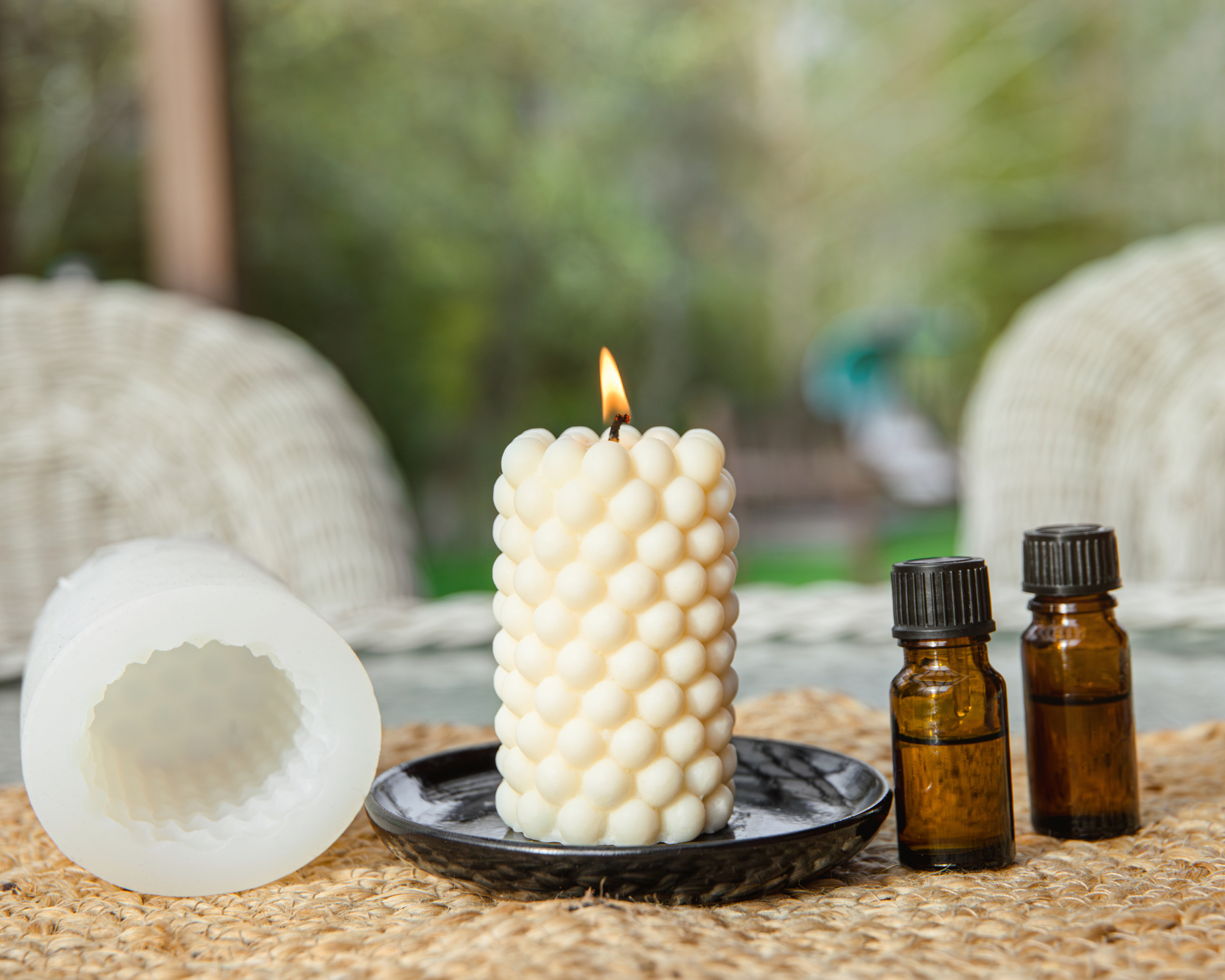
Most of us have used or heard of citronella for mosquitoes. But this plant’s pleasant, citrusy aroma deters wasps as well. Wasps are also averse to the smell of peppermint, clove, lemongrass, and geranium.
You can burn candles that contain the essential oils of the plants listed above, like these citronella candles from Amazon, or use oils in a spray bottle mixed with water to perfume your outdoor area.
For another pantry-ready wasp repellent, mix equal parts white vinegar or apple cider vinegar and water and spray it around your outdoor space to deter pests. To make an even stronger repellent, add a few drops of peppermint oil, like this one from Amazon, to a spray bottle filled with the vinegar and water solution.
2. Grow Scented Plants
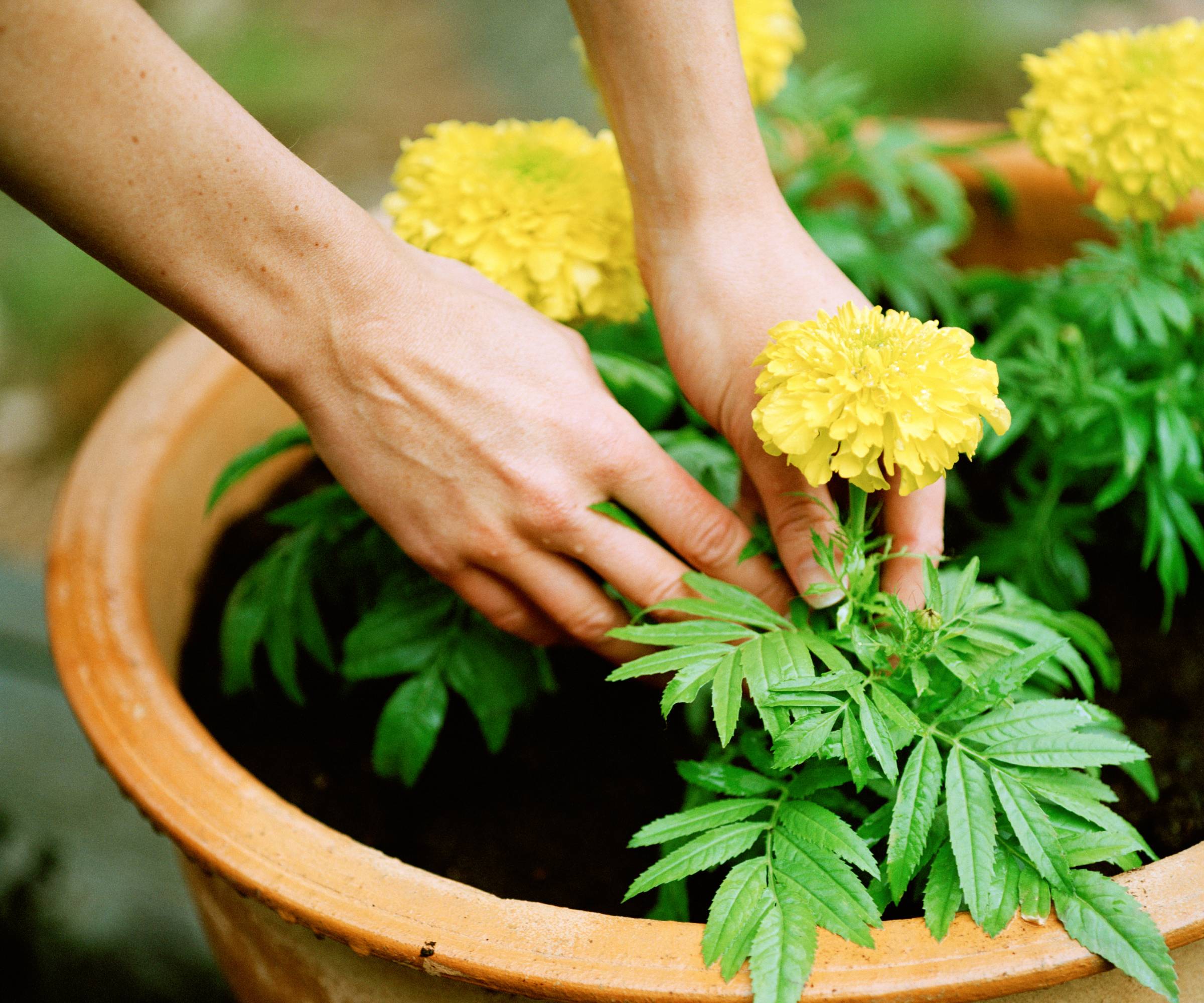
My favorite way to deter these pests, which is a no-brainer for those of us who love to garden, is to grow plants that wasps hate.
Instead of using an essential oil spray, plant peppermint or spearmint plants along the border of your deck or patio. These will attract pollinators, but repel wasps. Do keep in mind that members of the mint family can become invasive, so they are best contained in planters or pots.
The pleasant aromas of lavender and rosemary are also abhorrent to wasps. Both these hardy herbs like full sun and warm conditions with well-draining soil and make a lovely border or low hedge.
Eucalyptus is another wasp repellent with a strong scent. Plant it in USDA zones 8-11 where it will grow rapidly. Do be aware, however, that the plant is toxic to both other plants and animals so be cautious about its location.
Geraniums are reliable bloomers from spring through fall. While all geraniums can help to deter wasps, scented geraniums are your best bet. Grow them as annuals in full sun and well-drained soil in the ground or in containers.
Marigolds are another annual bloomer that not only make great companion plants, but repel wasps as well as rabbits and deer. The best variety to deter pests are French marigolds, which you should grow in a sunny area with well-draining soil.
3. Make Your Yard Unwelcoming to Wasps
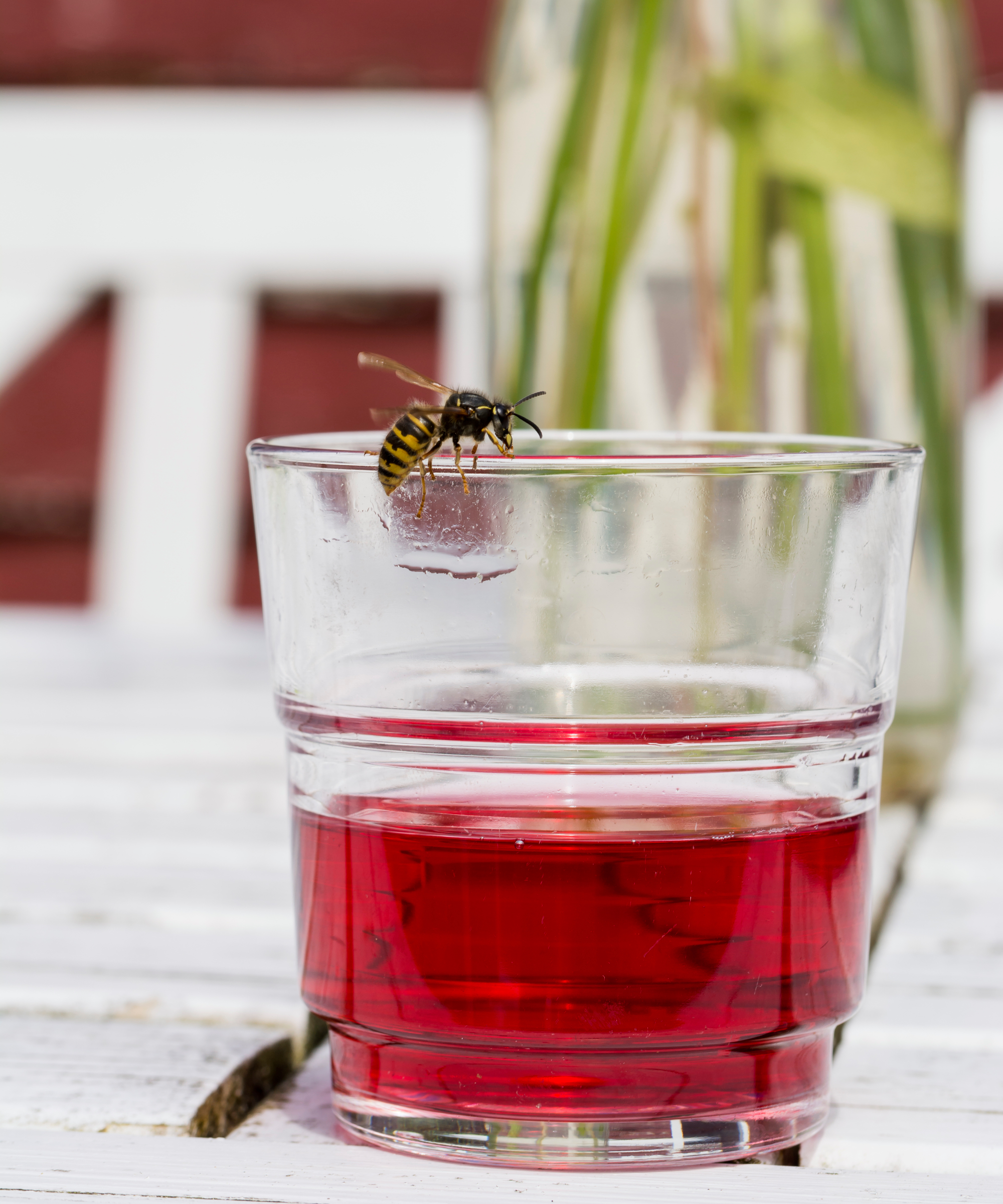
Lastly, don’t put out the welcome mat for wasps. This means keep your garden clear of debris, don’t leave food and drinks out, and keep your garbage and recycling bins clean and closed. Eventually, the wasps will lose interest and move on without the need for unsafe sprays.
While wasps may be unwelcome at your cookout, they are environmentally important. Though not considered major pollinators, like bees and butterflies, technically wasps are pollinators.
They also aid in the decomposition of dead animals and insects as well as plants. Predatory wasps can also help keep other unwanted garden pests in check, which in turn reduces the need for chemical pesticides.
All of the above are good reasons to seek out natural wasp deterrents rather than reaching for chemical controls, which are not only bad for wasps but for the environment and your family, too.

Amy Grant has been gardening for 30 years and writing for 15. A professional chef and caterer, Amy's area of expertise is culinary gardening.
- Laura WaltersContent Editor